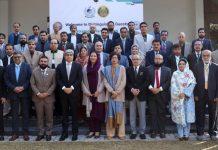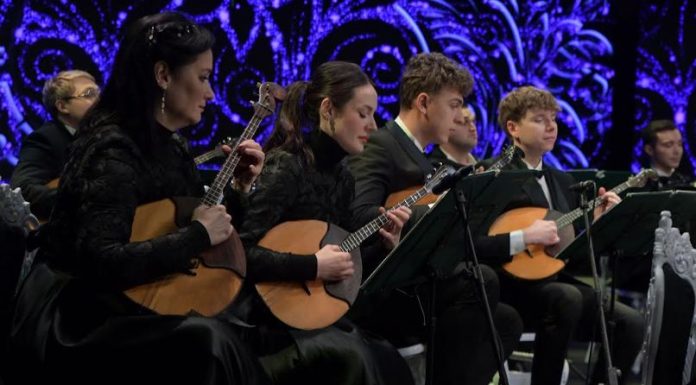Iqbal Khan
With regard to its primary role—Peaceful World— the United Nations faces a multitude of challenges. In the absence of any meaningful effort to mitigate these challenges, the UN has incrementally been in a nose-dive posture with regard to its credibility, as an honest peace broker, and effectiveness in term of its ability to implement its resolutions. Unless a meaningful strategy is adopted to mitigate the impact of these challenges, the role of the UN is likely to keep shifting from substance to nuance.
Prime Minister Imran Khan, highlighted the importance of the 75th anniversary of the UN. “This is also a time for us to reflect whether as the United Nations, we have been able to realize the promise we made collectively to our peoples,” he asked. Amid multifaceted threats to the foundations of the world order, the only way forward is through cooperation and not confrontation, he said.
He informed the General Assembly of “smart lockdowns” employed by Pakistan in its fight against Covid-19. “We have not only managed to control the virus, stabilize our economy, but most importantly, we have been able to protect the poorest segment of our society from the worst fallouts of the lockdown,” he said, adding that in spite of the success, Pakistan is not out of the woods yet, like all other countries in the world.
Reiterating the threats posed by climate change, Imran Khan called on world leaders to ensure that all commitments made in the Paris Agreement on Climate Change are fulfilled.
He voiced deep concern over rising religious hatred, increased nationalism and worsening global tensions, factors that have accentuated ‘Islamophobia’, resulting in attacks against Muslims in many countries. He stressed that “wilful provocations” and “incitements to hate” must be universally outlawed, calling on the General Assembly to declare an “International Day to Combat Islamophobia.”
He referred to India’s State-sponsored Islamophobia, pointing out that mosques have been destroyed, and at that Muslims have been killed and are at risk of losing their nationality due to discriminatory laws, noting that other religions are also at risk of being marginalized in India.
He underlined that for durable peace in the South Asian region, the Jammu and Kashmir dispute needs to be resolved, on the basis of international legitimacy. “The Security Council must prevent a disastrous conflict and secure the implementation of its own resolutions as it did in the case of East Timor,” he said, calling on the body to take “appropriate enforcement actions.”
Referring to the Intra-Afghan negotiations, he said that early return of Afghan refugees, sheltering in Pakistan, must be part of the political solution. Prime Minister called upon the UN SG to take the lead in preventing global conflicts. To that end, he urged the convening summit-level meetings to address regional hot-spots and resolve outstanding disputes.
Four of the five,veto- power wielding permanent members of the UN SC, spoke in the opening session. Donald Trump, Xi Jinping and Vladimir Putin presented their widely divergent views of the world. Emmanuel Macron berated both the US and China for the diplomatic impasse at the UN. Boris Johnson, representing the fifth member of the permanent five, was given a speaking slot near the end of the general debate, a harsh measure of the UK’s declining influence. Seeing the divergence, the UN’s 75th General Assembly was worse than the world’s worst Zoom meeting. Reservoir of hope was running low.
Leaders of the world’s two largest economies, China and the US, laid out their competing visions as relations between the two plunged to their worst level in decades as the coronavirus tensions are aggravating their trade and technology disputes. President Trump used the occasion to attack China’s handling of the Covid-19 pandemic, saying that Beijing must be held accountable for having “unleashed this plague onto the world”. By contrast, President Xi Jinping struck a conciliatory tone, calling for enhanced cooperation over the pandemic and stressing that China had no intention of fighting “either a Cold War or a Hot War with any country”. Trump, facing a November re-election with his country dealing with the world’s highest death toll from the contagion, accused Beijing of allowing people to leave China in the early stages of the outbreak to infect the world while shutting down domestic travel. In an implicit rebuke to Trump, President Xi called for a global response to the coronavirus and giving a leading role to the World Health Organisation (WHO). “Facing the virus, we should enhance solidarity and get through this together,” he added.There is wide spread Muslim perception of victimhood at the hands of UN dominant West on various counts, and rightly so. There have been recurrent failures to deliver a fair deal to Muslims, examples are: Kashmir, Palestine and Cyprus conflicts. Muslims also feel that when non-Muslims are likely to be the beneficiaries of a conflictual settlement with Muslims, Western countries and their affiliate institutions manage a quick settlement, examples are: East Timor, Ireland, Sudan etc. On the other hand when Muslims are likely to be beneficiary of conflict settlement with a non-Muslim faction, conflict is assigned to cold storage and there is a never ending foot dragging. And whenever there is a solution, due benefit to Muslim faction is marred by creating conflictual political structures; example, post conflict Bosnian political arrangement. This has generated a perpetual sense of insecurity and injustice amongst the Muslim States and the Muslim people viz a viz the UN.
Summary statement by Mr. Antonio Guterres, the UN Secretary General about the matters of which the Security Council is seized, was issued on January 2, 2020; all 69 agenda items were identified “as matters of which Security Council was currently seized,” including “The India-Pakistan Question.” Some of these conflicts are almost as old as the UN itself. Most glaring are Kashmir and Palestine conflicts which have caused numerous wars.
Now more and more countries look towards other fora for settling interstate matters. Power is, slowly but continuously, shifting away from under the feed of the UN.
UNSG aptly used the event of his inaugural addressed to sound a Clarion call: “Today, we face our own 1945 moment,” António Guterres, said as he opened the annual UNGA debate. Guterres meant the historical reference as a call to action inspired by the generation who had survived the second world war and sought to build a new world. Year 1945 was also the starting point of the cold war, and he warned about a new standoff, with the rapidly escalating US-China rivalry taking the world in “a very dangerous direction”. “Our world cannot afford a future where the two largest economies split the globe in a great fracture – each with its own trade and financial rules and internet and artificial intelligence capacities,” Guterres added. Any one listening?
Writer is a freelance contributor; e-mail: [email protected]











